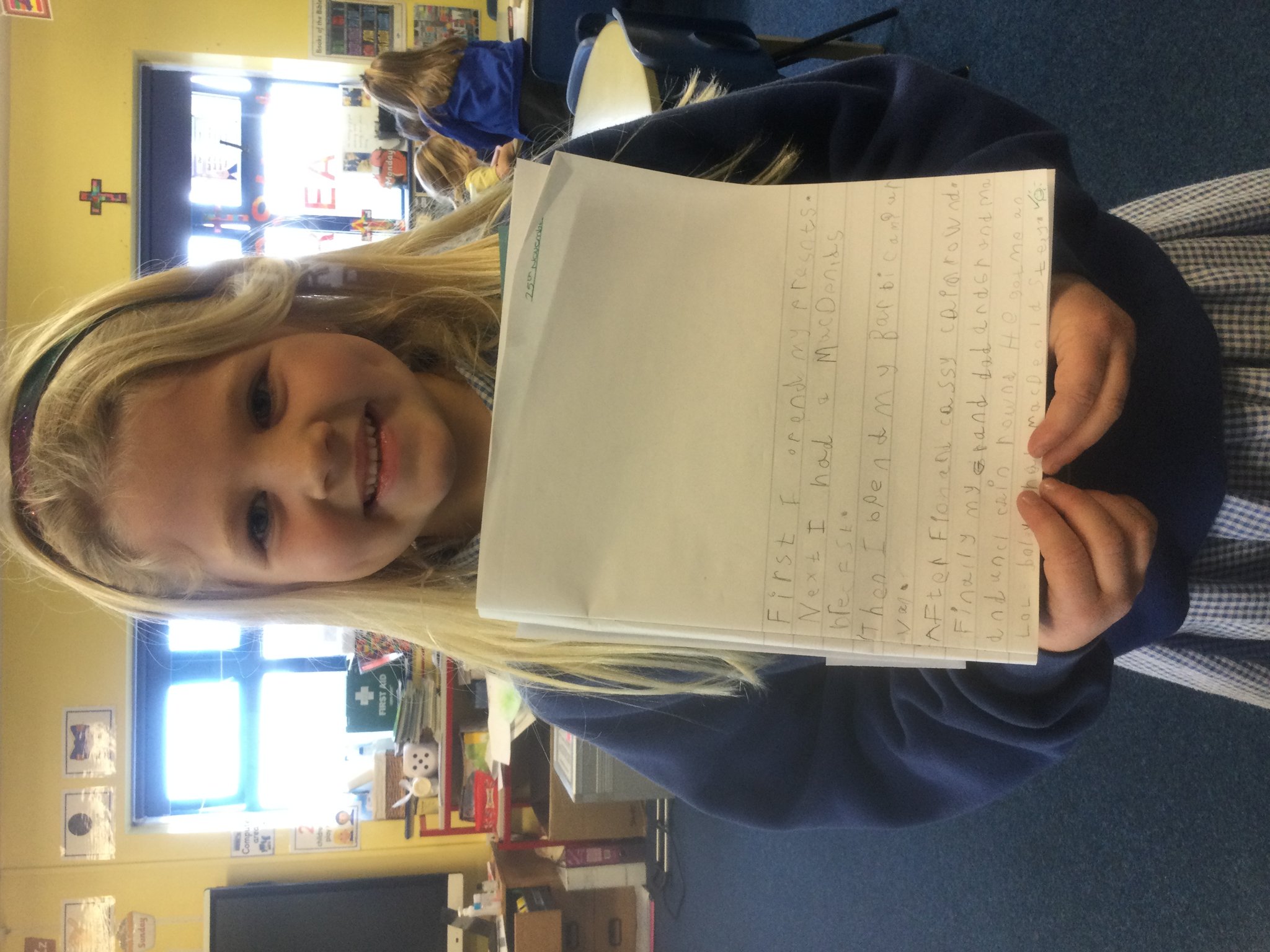Our vision for writing is to develop:
- successful learners who achieve their potential in Writing
- confident individuals who write clearly, accurately and coherently, adapting their language and style for a range of contexts, purposes and audiences
- responsible and spiritual citizens who appreciate our rich and varied literary heritage
- active engagement, drawing on appropriate outside expertise to enhance our writing curriculum such as authors and poets.
We teach the National Curriculum using a book-based approach following the Literary Curriculum. We believe the exposure of children’s literature is vital as a rich context for learning; not only within English as a subject but to support building a reading culture throughout the school. We aim to use high quality books that offer opportunities for empathy and aid philosophical enquiry, where children see different cultures, families and relationships reflected, as a means of developing the spoken language requirements through debate, drama and discussion using the issues raised through, and within, the text.
By placing books at the core, teachers use the text as the context for the requirements of the national curriculum. We aim for our writing opportunities to be meaningful and to feel authentic and for a clear audience. Books offer this opportunity: our aim is that that children have real reasons to write, whether to explain, persuade, inform or instruct and that where possible, this can be embedded within text or linked to a curriculum area. Typically 4 books are covered each term, with a range of writing opportunities leading to a main outcome.
Pathfinders Literacy 23/24
Discoverers Literacy 23/24
Adventurers Literacy 23/24
Navigators Literacy 23/24
We use Phonics Bug, a systematic synthetic DfE approved phonics scheme, to teach daily phonics lessons in EYFS and Year 1, building the foundations of independent reading and writing. Handwriting is taught following the Letterjoin scheme, using a cursive style.
We strive for all our children to achieve their best in writing. Some pupils have barriers to learning due to SEND such as physical difficulties, communication difficulties or dyslexia. We support children through carefully chosen tasks and/or classroom support, for example:
- Using coloured paper for children with dyslexia
- Word banks, mats and writing tips
- Using speech recognition apps to support dyslexic writers
- Using ICT to aid presentation
- Using adult scribe and/or prompter
- Talking postcards and tins to record and play back sentences to aid memory
- Using story maps to aid memory
Our provision is further enriched with
- theme days/events which provide opportunities for writing across the curriculum, for example making anti-bullying posters, leaflets to promote road safety outside school, writing letters to the council
- visiting speakers and workshops such as author/ poet visits
- displaying work in our Star Writer Book
- writing and performing plays
- participation in national events such as World Book Day
- competitions such as the BBC young writer 500 word competition
The boys in EYFS enjoy practising their phonics.
Here we have been writing acrostic poems linked to our topic work.

